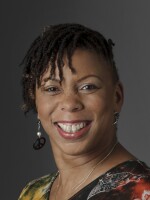RENEE MONTAGNE, host:
The president of the NAACP has resigned. Bruce Gordon was in the office less than two years. Now the organization has to search for a new leader and deal with fallout from the abrupt resignation of a man many had hoped would bring new vitality to the nearly century-old institution.
NPR's Allison Keyes explains.
ALLISON KEYES: Bruce Gordon took over the nation's oldest civil rights organization in August of 2005. At that time, the NAACP was facing declining membership and influence. And many took the appointment of a man with a 35-year career in the telecommunications industry as a sign that the group was looking for a new direction.
But critics like University of Maryland political science professor Ron Walters thought choosing Gordon was a mistake because a businessman and a civil rights advocate have different styles.
Professor RON WALTERS (University of Maryland): Corporate leadership requires a style of leadership that is very often consensual, data-based and there's a lot of planning involved. Civil rights leaders should be born to raise hell, bring pressure to bear on political systems, mobilize people and set agendas and push those agendas pretty hard.
KEYES: Still, Gordon's business acumen and corporate contacts have served the organization well. A campaign of conciliation he orchestrated helped persuade President Bush to end a five-year boycott and attend the group's 2006 convention.
Gordon used his business ties to help African-Americans in New Orleans after Hurricane Katrina. Some in the organization like Jacksonville, Florida board member Richard Burton say the melding of Gordon's background with the civil rights group's agenda has worked.
Mr. RICHARD BURTON (NAACP Board Member): I think he was the fit. I think he was the person for the time. He was moving in a direction that he could really champion the cause of civil rights by having the business savvy as well as the people savvy that he has.
KEYES: But Gordon told the Associated Press yesterday that he was quitting after 19 months because of conflicts with board members over management style and future operations. He said no organization can be effective if its board and the CEO aren't aligned, and Gordon called the misalignment between himself and the board - quoting here - "unhealthy." Gordon made the unusual choice of announcing his departure to the AP.
He said he'd informed the board at their annual meeting last month. But the group's COO, Reverend Nelson Rivers, declined to discuss the situation, saying he had seen nothing official. Chairman Julian Bond could not be reached for comment. Gordon said the 64-member board is very much involved, while as a CEO, he is used to running an organization while the board approves strategy and policy.
Chairman Bond has acknowledged that the large board can be unwieldy, but says it allows a wide range of voices to be heard. Former NAACP president Kweisi Mfume agrees.
Mr. KWEISI MFUME (Former President, NAACP): Whenever you have a board of that size and magnitude, there is going to be an inherent push-pull in terms of its desire to want to oversee and, to some extent, help to manage the organization.
KEYES: Mfume says he respects Gordon's capabilities and the commitment he brought to his work. And he says the president's chair isn't an easy one, what with handling 1,700 branches in 50 states plus overseas chapters and putting out fires that happen on a day-to-day basis. But he says nonprofit organizations doing the work of social justice have the constant challenge of changing to reflect the times.
Mr. MFUME: The NAACP of the 1920s would not have been effective if they carried that same modus operandi into the 1940s. And the NAACP of the '40s wouldn't have been the same in the 1960s if it didn't adapt and change.
KEYES: Outgoing president and CEO Bruce Gordon has said that the venerable civil rights group, which focuses on advocacy, should deal more with service and finding solutions to the community's problems. When he steps down near the end of this month, Gordon says, he'll find a different way to serve black America.
Allison Keyes, NPR News, Washington. Transcript provided by NPR, Copyright NPR.






